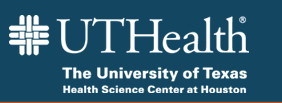Epilepsy Phenome/Genome Project
| Status: | Completed |
|---|---|
| Conditions: | Other Indications, Neurology, Epilepsy |
| Therapuetic Areas: | Neurology, Other |
| Healthy: | No |
| Age Range: | Any - 60 |
| Updated: | 11/14/2018 |
| Start Date: | November 2007 |
| End Date: | October 2018 |
Epilepsy Phenome/Genome Project: A Phenotype/Genotype Analysis of Epilepsy
The purpose of this study is to collect detailed information about the characteristics and
genetics of a large number of individuals with epilepsy.
genetics of a large number of individuals with epilepsy.
Epilepsy is one of the most common neurological disorders and is a major public health
concern. Approximately 30 percent of people with epilepsy have medically intractable
epilepsy, and the medical and social consequences of the disorder are enormous. Treatments
developed for epilepsy have largely been experimental rather than based on knowledge of basic
mechanisms because the mechanisms are poorly understood.
The Epilepsy Phenome/Genome Project (EPGP) is a large-scale, international,
multi-institutional, collaborative research project aimed at advancing the understanding of
the genetic basis of the most common forms of epilepsy.
The overall goal of EPGP is to collect detailed, high quality phenotypic (i.e.,
characteristics of individuals, from the molecular level to the whole person) information on
persons with epilepsy and to compare the phenotypic information with genomic information.
EPGP will provide a resource that may lead to many discoveries related to the diagnosis and
treatment of epilepsy, including the eventual development of new therapies based on a better
understanding of causes of the disorder.
concern. Approximately 30 percent of people with epilepsy have medically intractable
epilepsy, and the medical and social consequences of the disorder are enormous. Treatments
developed for epilepsy have largely been experimental rather than based on knowledge of basic
mechanisms because the mechanisms are poorly understood.
The Epilepsy Phenome/Genome Project (EPGP) is a large-scale, international,
multi-institutional, collaborative research project aimed at advancing the understanding of
the genetic basis of the most common forms of epilepsy.
The overall goal of EPGP is to collect detailed, high quality phenotypic (i.e.,
characteristics of individuals, from the molecular level to the whole person) information on
persons with epilepsy and to compare the phenotypic information with genomic information.
EPGP will provide a resource that may lead to many discoveries related to the diagnosis and
treatment of epilepsy, including the eventual development of new therapies based on a better
understanding of causes of the disorder.
Inclusion Criteria:
- Current age from 4 weeks to 60 years.
- Clear diagnosis of epilepsy, i.e., a lifetime history of two or more unprovoked
seizures.
- Age at first unprovoked seizure younger than 40 years.
- High quality clinical and laboratory data (i.e., neuroimaging, EEG) must be available
throughout the patient's history
- All patients with localization-related epilepsy (LRE) or idiopathic generalized
epilepsy (IGE) must have a first-degree relative (parent, child, or sibling) with
non-symptomatic (idiopathic or cryptogenic) epilepsy who is willing and available to
participate.
- All patients with infantile spasms (IS), Lennox-Gastaut syndrome (LGS), or
malformations of cortical development (MCD) must have both biological parents
available and willing to participate.
Exclusion Criteria:
- Clinical and laboratory data do not allow a clear determination of whether the patient
has epilepsy, or whether the diagnosis is LRE, IGE, IS, LGS, or MCD.
- Exclusively febrile seizures or other acute symptomatic seizures.
- Identified antecedent cause of epilepsy (i.e., a structural or metabolic insult to the
CNS prior to the first unprovoked seizure, such as stroke, brain tumor, severe head
trauma, etc., or a progressive neurodegenerative disorder).
- Recognized genetic syndrome (e.g., tuberous sclerosis, neurofibromatosis, Rett's or
Angelman's syndromes) or chromosomal abnormality. (e.g., aneuploidies, unbalanced
translocations, or chromosomal deletions and duplications detectable by conventional
medical karyotyping).
We found this trial at
24
sites
Cleveland Clinic Cleveland Clinic is committed to principles as presented in the United Nations Global...
Click here to add this to my saved trials
7000 Fannin St
Houston, Texas 77030
Houston, Texas 77030
(713) 500-4472

University of Texas Health Science Center at Houston The University of Texas Health Science Center...
Click here to add this to my saved trials
Click here to add this to my saved trials
1211 Medical Center Dr
Nashville, Tennessee 37232
Nashville, Tennessee 37232
(615) 322-5000

Vanderbilt Univ Med Ctr Vanderbilt University Medical Center (VUMC) is a comprehensive healthcare facility dedicated...
Click here to add this to my saved trials
4401 Penn Avenue
Pittsburgh, Pennsylvania 15224
Pittsburgh, Pennsylvania 15224
412-692-5325

Children's Hospital of Pittsburgh of UPMC UPMC is one of the leading nonprofit health systems...
Click here to add this to my saved trials
Ann Arbor, Michigan 48109
Click here to add this to my saved trials
Click here to add this to my saved trials
Birmingham, Alabama 35294
Click here to add this to my saved trials
Click here to add this to my saved trials
Click here to add this to my saved trials
Click here to add this to my saved trials
University of Virginia Health System UVA Health System includes a 604-bed hospital, level I trauma...
Click here to add this to my saved trials
Click here to add this to my saved trials
Click here to add this to my saved trials
Click here to add this to my saved trials
New York, New York 10032
Click here to add this to my saved trials
New York, New York 10016
Click here to add this to my saved trials
Philadelphia, Pennsylvania 19104
Click here to add this to my saved trials
Click here to add this to my saved trials
Click here to add this to my saved trials
Click here to add this to my saved trials
Click here to add this to my saved trials
Seattle Children's Hospital Seattle Children’s Hospital specializes in meeting the unique physical, emotional and developmental...
Click here to add this to my saved trials
West Orange, New Jersey 07052
Click here to add this to my saved trials


